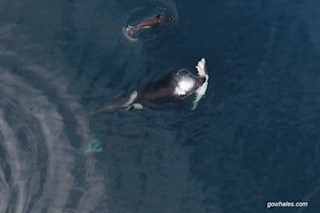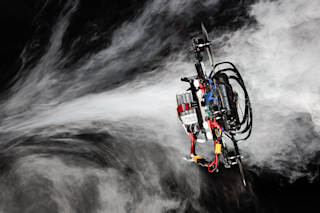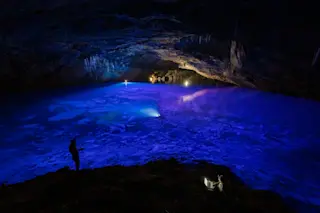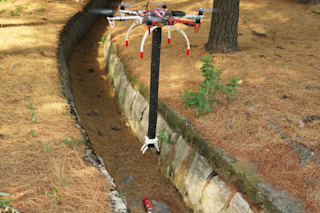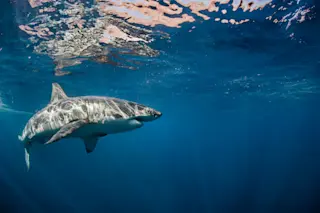To killer whales, sharks aren’t all that fearsome. They’re more of a snack.
A drone pilot recently captured this video of four killer whales — two adults and two juveniles — chowing down on a still-living shark off the coast of California. They appear to be offshore killer whales, a sub-species that usually spends time far from land, making any glimpses of their behavior a rare treat.
Photographer Slater Moore shot the video as part of a whale-watching trip in Monterey Bay. He sent the drone aloft after realizing the whales had nabbed some prey and were in the process of eating it. The shark is still obviously alive at the beginning of the video, you can see it attempting to squirm itself loose from the massive jaws of one of the adults. The whales pass their prey back and forth a few times, presumably to make sure everyone gets ...


